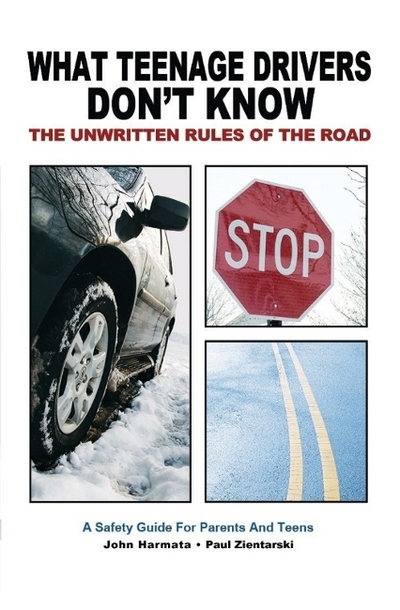Parents of ADHD-diagnosed Teens Can Teach Safe Driving Practices With Help of "What Teenage Drivers Don't Know
 |
NAPERVILLE, IL -- Oct. 7, 2015: Teenagers with ADHD are four times more likely to be in an auto accident than their non-ADHD peers are, yet driver's education courses do little to prepare these young people for the rigors of the road. With October being National ADHD Awareness Month, the authors of "What Teenage Drivers Don't Know: The Unwritten Rules of the Road" want people to know their book can be an effective learning aid for teens with ADHD. The book will also help parents deal with those feelings of anxiety that are natural when handing the keys to a son or daughter.
"We believe every parent and young teen in America should have access to this book," explains co-author John Harmata. "In particular, parents of children with ADHD should start instilling the lessons of good driving as early as age 13 or 14. Our book covers what driver's education leaves out, such as handling bad weather or night driving, maintaining a vehicle and navigating the traffic court system."
Authors John Harmata and Paul Zientarski.
Authors John Harmata and Paul Zientarski.
What Teenage Drivers Don't Know: The Unwritten Rules of the Road
What Teenage Drivers Don't Know: The Unwritten Rules of the Road
ADHD is a brain-based condition that affects people of all ages and backgrounds. According to the CDC, nearly 10% of children had been diagnosed with ADHD at some point. Boys were two to three times more likely than girls were to be diagnosed with the condition. For each one of these young people, driving will present a significant challenge.
The major symptoms of ADHD include inattention, impulsiveness and high distractibility. Together, these symptoms amount to a deficiency of executive functioning, or the capacity of the brain to see consequences, weigh choices rationally and plan for contingencies. Poor executive functioning does not make for the best mental orientation to driving; however, the proper training and preparation can help even those with ADHD become skilled motor vehicle operators. "The Unwritten Rules of the Road" is an important supplement in this respect, as the book fills in many of the blanks left by school-based and commercial driving programs.
Among those with ADHD, speeding and failure to yield are a couple of the more common moving violations. Lack of attention can lead these drivers to ignore posted speed limit signs or to deliberately drive too fast to avoid being late. In addition, the impulsive tendency of those with ADHD can encourage risky, reckless behaviors, even behind the wheel.
The task of operating a motor vehicle, especially in heavy traffic or bad weather conditions, places demands on executive functioning that are tough even for people without ADHD. "The Unwritten Rules of the Road" enforces the importance of maintaining constant focus on what's happening inside, outside and around the car, and most importantly, where the car is going.
According to Harmata, nearly every outing in the car represents an opportunity for parents to share "teachable moments" with their children, even years before getting their learners' permits. Teenagers are already statistically the most dangerous drivers on the road, and ADHD exacerbates the problem significantly. Motor vehicle crashes are the #1 cause of injury and death among teens. Turning those numbers around one teenager at a time is the mission of Harmata and his co-author, Paul Zientarski. About the Authors
John Harmata, business owner and entrepreneur, was born and raised in Chicago, Illinois. His concern for child safety has been a priority in life. Raising two children together with his wife, John has experienced the concern parents have for their children as they take those first steps toward independence and begin to drive. John, creator and lead author believes that "What Teenage Drivers Don't Know: The Unwritten Rules of the Road" will help protect our most valuable possessions – our children's lives.
Paul Zientarski has dedicated 40 years of his life to teaching students physical education, culminating his career as Department Chairman for Physical Education, Health, and Driver Education. As the Department Chairman for Driver Education, Paul's responsibilities included staff development, supervision, and film reviews for Simulator Systems, Inc.


